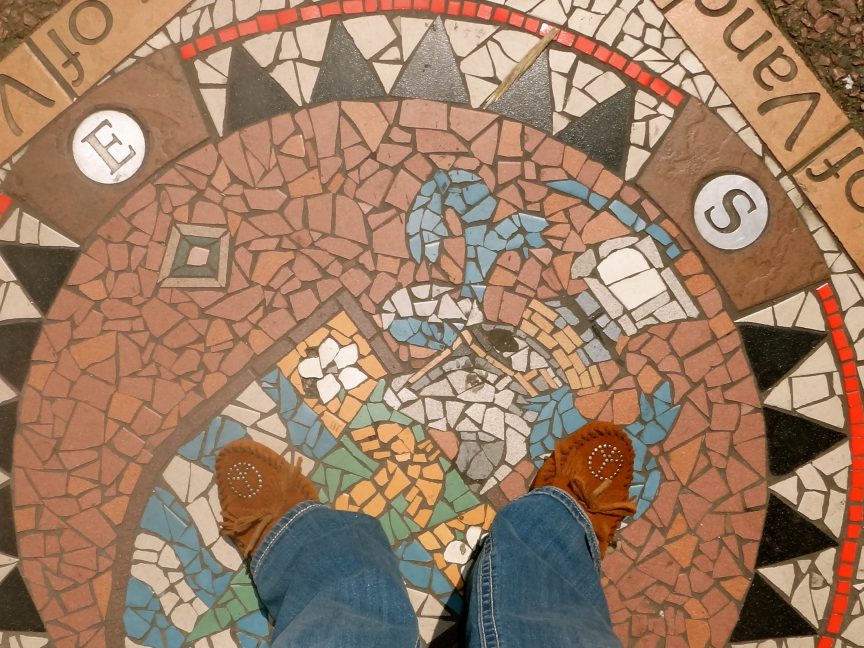Warning: count(): Parameter must be an array or an object that implements Countable in /home/ae5rdc0mr9y1/domains/travelingoutloud.com/html/wp-includes/media.php on line 1204
Warning: count(): Parameter must be an array or an object that implements Countable in /home/ae5rdc0mr9y1/domains/travelingoutloud.com/html/wp-includes/media.php on line 1204
Warning: count(): Parameter must be an array or an object that implements Countable in /home/ae5rdc0mr9y1/domains/travelingoutloud.com/html/wp-includes/media.php on line 1204
Warning: count(): Parameter must be an array or an object that implements Countable in /home/ae5rdc0mr9y1/domains/travelingoutloud.com/html/wp-includes/media.php on line 1204
Warning: count(): Parameter must be an array or an object that implements Countable in /home/ae5rdc0mr9y1/domains/travelingoutloud.com/html/wp-includes/media.php on line 1204
Warning: count(): Parameter must be an array or an object that implements Countable in /home/ae5rdc0mr9y1/domains/travelingoutloud.com/html/wp-includes/media.php on line 1204
Warning: count(): Parameter must be an array or an object that implements Countable in /home/ae5rdc0mr9y1/domains/travelingoutloud.com/html/wp-includes/media.php on line 1204
Being prepared for your travels can make a huge impact on your travel experience. It can be make the difference between being miserable and having the time of your life. Here are ten things that you should do BEFORE you travel abroad.
If you don’t have a passport, get one as soon as you can as it usually takes awhile to get your passport and you usually need that information when booking things. Always have a passport, even if you don’t have a trip planned. You never know when you’ll need it.
Every country has different requirements that vary based on your country of citizenship. For US citizens, the U.S. Department of State Bureau of Consular Affairs website can be used to find country specific visa and passport requirements. For British citizens, the United Kingdom Government Foreign Travel website can be used. For Australian citizens, the Smartraveller website can be used. For Canadian citizens, the Canada Government Foreign Travel website can be used.
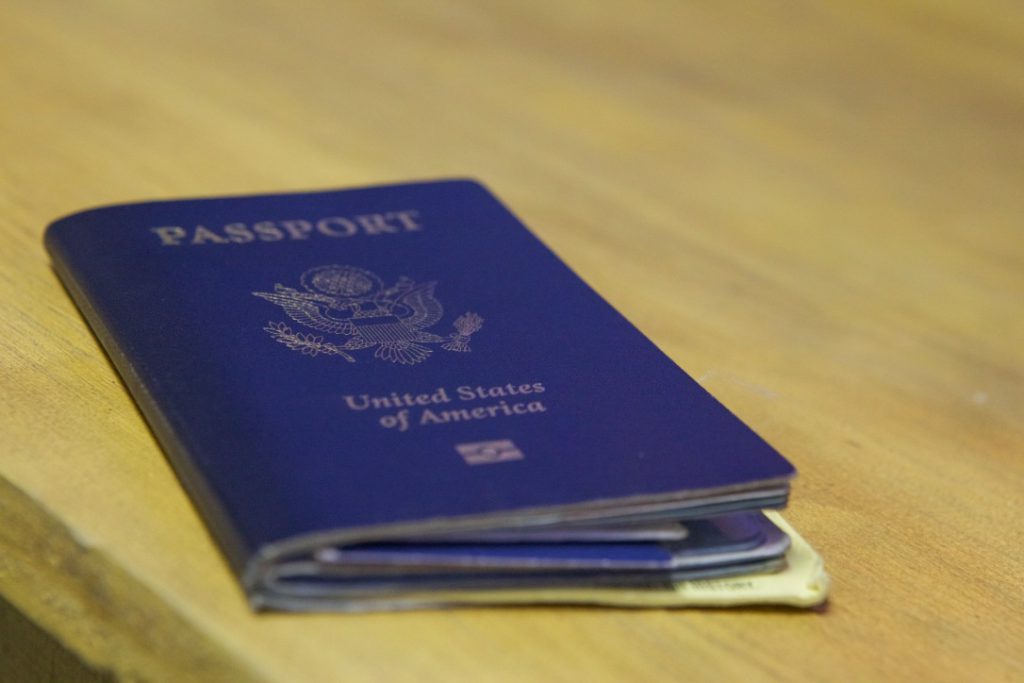
Passport photo by Brandy Little
Every country has different requirements that vary based on your country of citizenship. For US citizens, the U.S. Department of State Bureau of Consular Affairs website can be used to find country specific visa and passport requirements. For British citizens, the United Kingdom Government Foreign Travel website can be used. For Australian citizens, the Smartraveller website can be used. For Canadian citizens, the Canada Government Foreign Travel website can be used.
Check the climate and weather forecasts for your destination and take that into account in your packing. You also may want to research what the locals and expats wear. One of the best things you can do as a tourist is blend in with the locals.
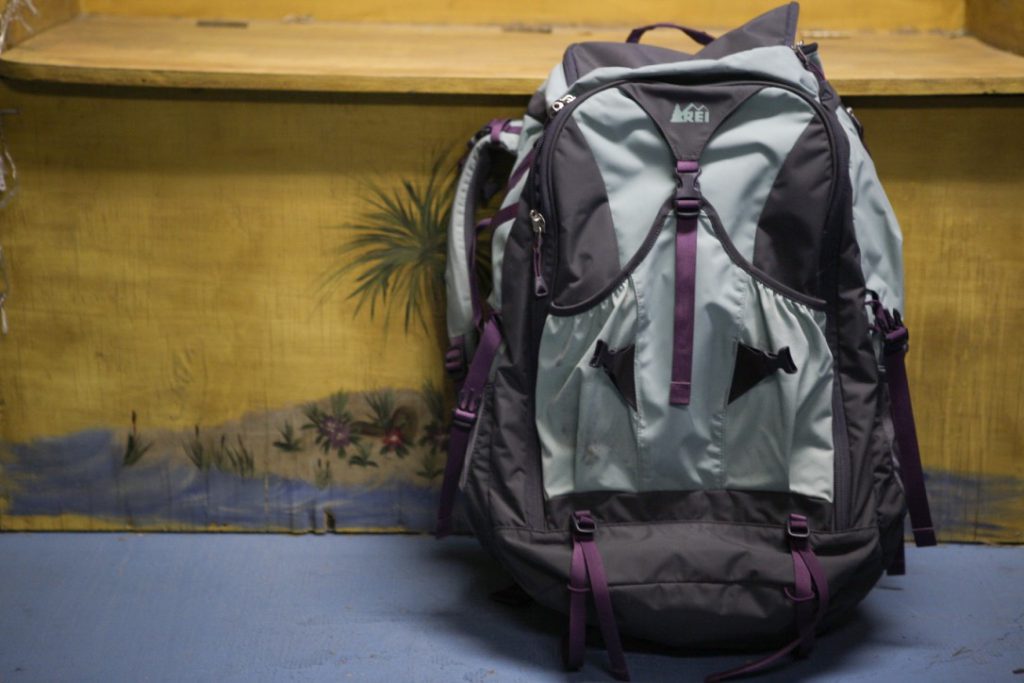
Backpack photo by Brandy Little
Try to minimize the connections you have, they add time, and increase the probability of missing a flight. Sometimes having at least one connection is unavoidable, but it is important to make sure you have enough time to make that connection. Navigating your way through a foreign airport can be a challenge. Sometimes they make you go back through security, which can be a long line. Depending on the airport, I usually leave 2 – 3 hours, airing closer to three hours, for all my stopovers.
Lastly, do some research about the vessel. Try to book seats ahead of time. Last thing you want is a middle seat between two strangers on an 18+ hour journey. I use Seat Guru to research the best seats.
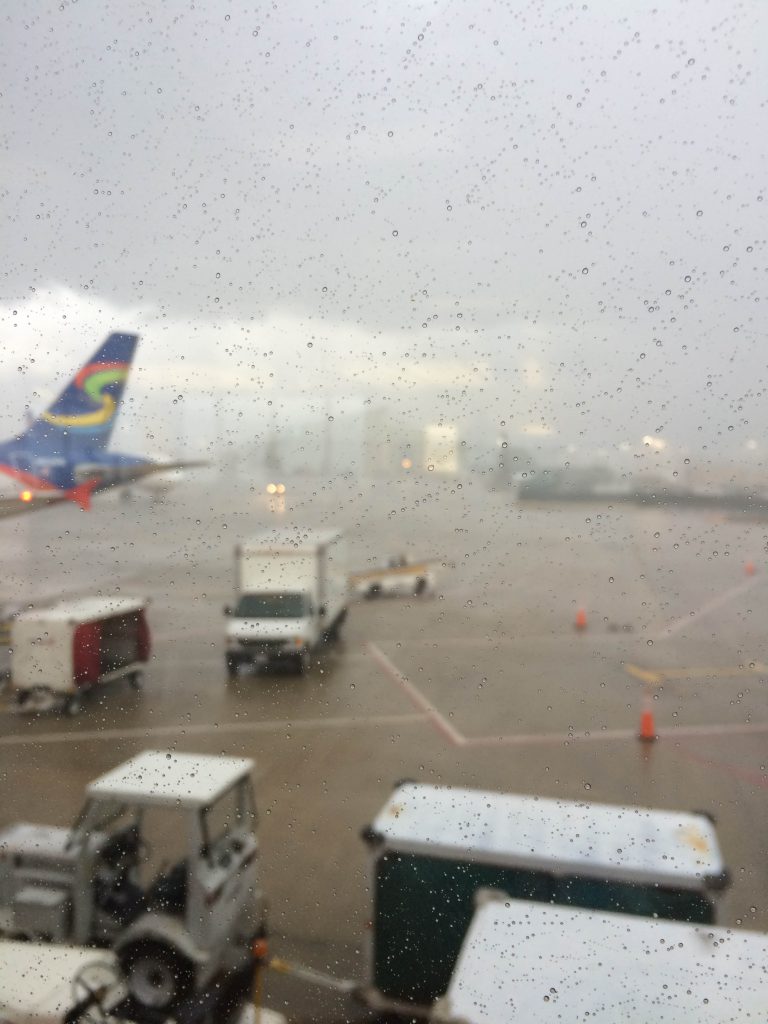
Airport by Brandy Little
You also want to be aware of other health risks and prepare against them. For instance, some places have disease carrying insects that you will want to fend off with the proper bug spray and proper attire. For some countries you may want to bring a water purification method or stick to bottled water. Some countries have rapid dogs you will want to know to steer clear of.
Also, you should be aware that some over-the-counter perfectly legal drugs in your country may be illegal in another country.
For most this information, I use the Center for Disease Control (CDC) and the World Health Organization (WHO). They are great resources to find out country specific health risks, information, and vaccination requirements.
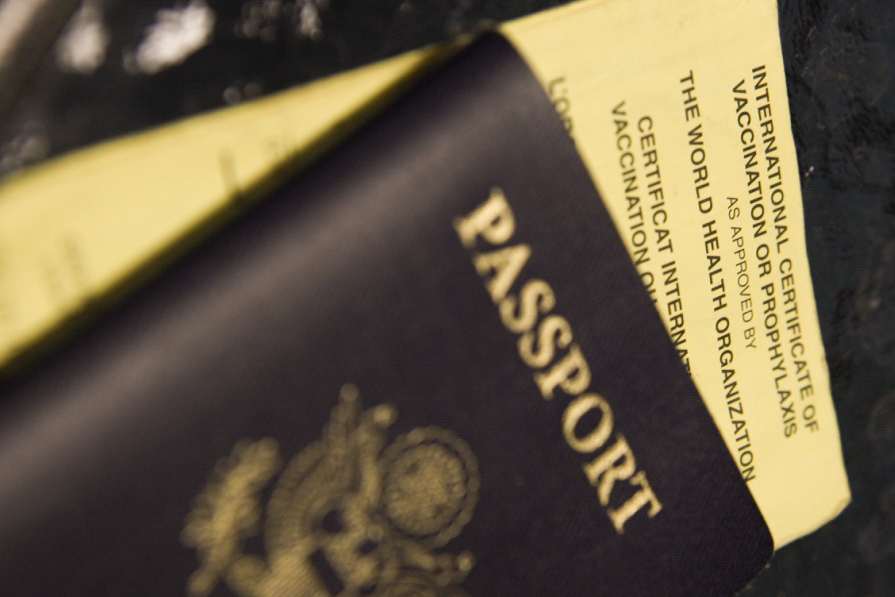
Vaccination Card photo by Brandy Little
You also want to know where your embassy is located in that country and what their contact information is. There may be times where you are a victim of a crime and they can sometimes provide you assistance.
It is also helpful to become aware of the common scams you may encounter, other common crimes, and any other pertinent security risks.
Some governments have a Smart Traveller Program that you can sign up for which helps you stay up-to-date on country specific safety and security information abroad and helps your embassy, family and friends contact you in case of an emergency.
Some countries will not let you in if you have a criminal record, or specific crimes on your record like drunk driving.
For cultural understanding, I check out Culture Crossings. I keep up-to-date through world news sites like BBC. For security information I check the U.S. Department of State Bureau of Consular Affairs website. For British citizens, the United Kingdom Government Foreign Travel website can be used. For Australian citizens, the Smartraveller website can be used. For Canadian citizens, the Canada Government Foreign Travel website can be used.

Guidebook photo by Brandy Little
You are going to want to figure out how to communicate with your friends and family ahead of time. Too many travelers have incurred outrageous data roaming fees on their cell phones plans to not figure things out ahead of time. Fortunately, as the world globalizes, communication platforms are stepping up to help people stay connected without breaking the wallet. Since these are always changing, it is best to do some research beforehand with your provider or other providers on using your phone abroad. If you are ever not sure, turn off the data on your phone and set it to airplane mode, and only use it with Wi-Fi connections when you can.
For Americans, T-Mobile just came out with a plan that allows free data in many countries around the world. You can also use Skype and the Skype application to communicate. FaceTime and texting can usually be used with Wi-Fi connections without problem.
Some countries have very basic services and it can be hard to find wifi connections or service areas. This is where a SPOT Satellite Messenger can be a useful tool for emergency help and communication. It allows you to connect to a satellite through the push of the button and send a message out to your family that you are ok or that you need assistance. It also has an emergency signal that notifies your family and the nearest police and fire stations your location and that you need help. There are also apps that you can get on your phone that function similarly for less cost.
Some countries have internet cafes you can use, and in some countries it’s easy to obtain a cheap pay-as-you-go phone or sim card. Side note, be careful what information you transmit with public connections.
We all hope that nothing bad will happen to us, but the reality is, things go wrong while traveling. Whether it be your luggage disappears, your flights get cancelled, you need emergency evacuation due to political turmoil or disastrous weather, or you get sick or injured and need health care. Travel insurance is a low cost way to have some peace of mind and some resources should you need them.
I always use and recommend World Nomads for travel insurance. They have coverage plans that are designed around the type of traveler you are, so you can customize it, and the cost is usually reasonable. Some credit cards can provide travel insurance as well through their card member benefits.
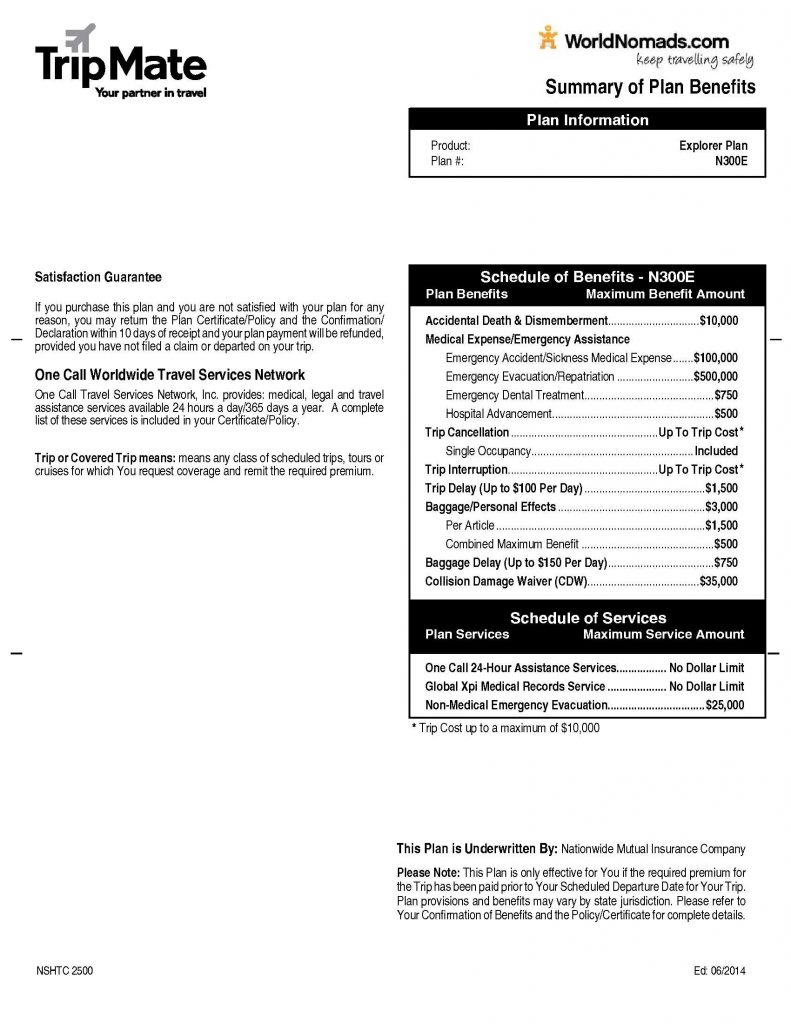
Travel Insurance photo by Brandy Little
Also, notify your bank and credit card companies about your travel so that way you don’t have to deal with a blocked card during your trip. It is also useful to find out what kind of foreign transaction fees or other fees your cards have. Some are more designed for travel and have benefits like no foreign transaction fees and even have limited travel insurance. Some banks have affiliate banks that won’t charge additional ATM fees or other fees.
It’s usually best to not carry all your money on you. I have found how much money one carries to be a personal preference among travelers. I knew one guy who only ever had $10 worth on him in cash, and relied on his cards the majority of the time. I have also known travelers who carry nearly all their money on their persons. You’ll have to find what makes you the most comfortable risk wise. If you do carry a lot of money, don’t put it all in one place, spread it out all through your stuff and on your body. If you decide to rely on your cards, make sure you know about the ATM fees, and be cautious of which ATM machines you use.
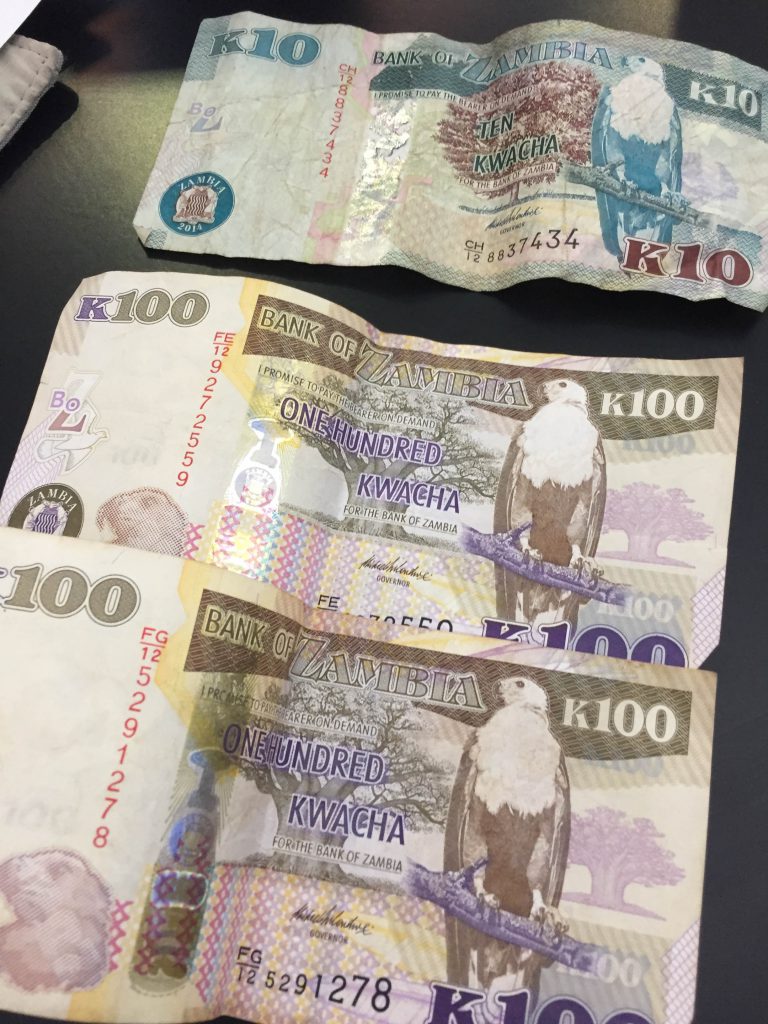
Currency by Brandy Little
There are tons of phone applications that help you stay organized like TripIt. You can also just email yourself or your family this information. Just make sure you have more than one place holding this information that you can access in the event you need it.
Share this Post
“Feeling ready to do something doesn’t mean feeling certain you’ll succeed, though of course that’s what you’re hoping to do. Truly being ready means understanding what could go wrong, and having a plan to deal with it.” – Chris Hadfield, Astronaut’s Guide to Earth

